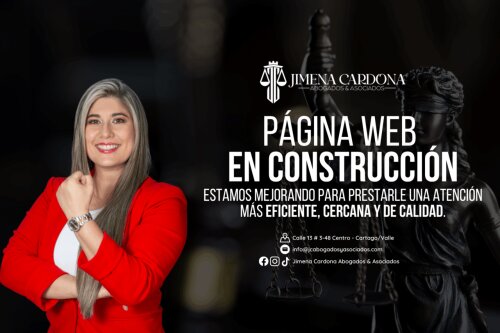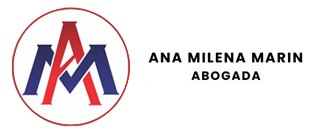Best Drug Crime Lawyers in Cartago
Share your needs with us, get contacted by law firms.
Free. Takes 2 min.
List of the best lawyers in Cartago, Colombia
About Drug Crime Law in Cartago, Colombia
Drug crime law in Cartago is defined by national statutes that apply uniformly across municipalities in Colombia. Enforcement and prosecution occur through the Fiscalía General de la Nación and the Policía Nacional, with cases resolved in the Valle del Cauca Department’s courts. The core legal framework comes from the Código Penal Colombiano and the Código de Procedimiento Penal, which establish offenses such as trafficking, manufacturing, possession for sale, and related activities involving estupefacientes and psicotrópicas.
In Cartago, residents should understand that penalties and procedures depend on the specific offense and aggravating factors. The right to legal counsel, due process, and timely notification of charges are guaranteed by the Constitution and national criminal procedure rules. For practical guidance, consult a licensed solicitor who understands both the state-wide codes and any local court practices in Valle del Cauca.
Drug crimes in Colombia are addressed through a combination of the Penal Code and the Criminal Procedure Code, with case outcomes influenced by quantity, intent, and evidence.Fuente: Fiscalía General de la Nación
Useful official resources and terms include estupefacientes (illegal drugs) and psicotrópicas (psychotropic substances), as defined in national law. For residents of Cartago, working with a local attorney who can coordinate with Fiscalía de Valle del Cauca and Cartago’s courts can streamline communication and scheduling.
Why You May Need a Lawyer
Facing drug crime allegations in Cartago requires precise legal guidance. Below are concrete, real-world scenarios where engaging a lawyer makes a difference.
- During a stop in Cartago, you are found with a small amount of a controlled substance and face charges for possession or trafficking depending on the circumstances.
- You are charged after police locate a package in your vehicle believed to be for distribution, raising trafficking or manufacturing allegations.
- You are under investigation for possession with intent to sell, or for manufacturing activities tied to a home workshop in nearby towns, and want to challenge evidence collection.
- A family member, including a minor, has been arrested for a drug offense in Cartago and you need counsel to protect due process rights and obtain appropriate safeguards.
- You received a formal charge notice and want to understand whether to contest the charges, accept a plea, or pursue a pretrial resolution with careful negotiation.
- You need help evaluating the potential consequences of a drug offense and seeking alternatives to detention or sentencing options available under Colombian law.
Local Laws Overview
The Colombian legal framework governing drug crimes rests on a few key statutes and concepts commonly used in Cartago. The main statutes include the Código Penal Colombiano and the Código de Procedimiento Penal, which set out offenses, penalties, and the process for prosecution.
Código Penal Colombiano (Ley 599 de 2000) - This law defines crimes such as trafico, fabricación, y tenencia de estupefacientes o psicotrópicas para la venta o distribución, as well as related forms of enablers and accomplices. It provides the baseline criminal definitions and penalties that prosecutors apply in Cartago and throughout Colombia.
Código de Procedimiento Penal (Ley 906 de 2004) - This statute governs investigations, arrest procedures, rights of defense, evidence rules, and pretrial processes. It structures how drug cases proceed from investigation to court in Cartago and the Valle del Cauca district.
Constitución Política de Colombia (1991, vigente) - The Constitution guarantees due process, presumption of innocence, and the right to legal counsel in all criminal proceedings, including drug offenses. These protections apply in Cartago for defendants at every stage of a case.
Recent enforcement trends in Cartago reflect national priorities to combat organized drug trafficking while ensuring fair process. Local practice often includes careful review of search and seizure legality, chain-of-custody for evidence, and the possibility of defense-focused motions in the Valle del Cauca courts. For detailed statutory texts, see the official resources listed in the sources below.
Sources for statutes and procedures include official government portals that host the Ley 599 de 2000 and Ley 906 de 2004 texts, as well as Fiscalía General de la Nación guidelines on drug offenses. Secretaría de Senado - Textos legales • Fiscalía General de la Nación.
Frequently Asked Questions
What is a drug crime in Cartago, Colombia?
A drug crime involves illicit substances and actions such as trafficking, fabricación or tenencia para la venta. The exact offense depends on the facts of the case and applicable articles in the Código Penal Colombiano.
How do I know if I need a lawyer for a drug case in Cartago?
Hire a lawyer if you face arrest, a formal charge, or an investigation for drug offenses. An attorney helps protect your rights, challenges evidence, and explains potential defenses.
When can I be detained or released in a drug case in Cartago?
Detention decisions depend on the charge, evidence, flight risk, and danger to society. Legal counsel can file pretrial motions and request conditions for release where appropriate.
Where will my drug case be heard in Cartago?
Cases arising in Cartago are typically heard in the Valle del Cauca judicial district, in accordance with Colombian criminal procedure rules.
Why is due process important in drug cases in Colombia?
Due process ensures fair treatment, proper notice, and the opportunity to present a defense. It helps prevent unlawful searches and coerced confessions.
Can possession for personal use result in charges in Cartago?
Possession for personal use can lead to administrative sanctions or non-penal enforcement in some contexts, but prosecutorial practice varies. A lawyer clarifies your position and rights.
Should I talk to the police without a lawyer in Cartago?
It is generally advisable to consult a solicitor before speaking with authorities. A lawyer can guide you on what to say and protect your rights.
Do I need a lawyer if I am accused of trafficking?
Yes. Trafficking charges carry severe penalties and complex evidence requirements. A specialized criminal defense solicitor can assess evidence and potential defenses.
Is there a difference between possession and trafficking under Colombian law?
Yes. Possession may be charged as possession for personal use or for sale depending on quantity, intent, and surrounding circumstances. Trafficking involves distribution or sale.
How long does a drug case take to resolve in Valle del Cauca?
Timeline varies by case complexity, court calendar, and investigations. Simple cases may resolve in months; more complex ones can take years.
What are typical legal fees for a drug crime case in Cartago?
Fees depend on case complexity, attorney experience, and required court time. Some lawyers charge a retainer and an hourly rate or fixed fee for specific services.
What's the difference between a private attorney and public defender in Cartago?
A private attorney is hired directly and may offer personalized services. A public defender provides representation funded by the state when eligible, but caseloads can be high.
Additional Resources
- Fiscalía General de la Nación - Investigates and prosecutes crimes, including drugs, and provides information about procedures and rights for defendants. Fiscalía General de la Nación
- Policía Nacional de Colombia - Enforces drug controls, conducts investigations, and provides guidance on reporting and rights during police encounters. Policía Nacional
- Ministerio de Justicia y del Derecho - Sets policy, standards for rights of the accused, and justice-sector guidelines applicable nationwide. Ministerio de Justicia y del Derecho
Next Steps
- Define the drug offense you're facing and gather all documents a lawyer will need (fichas policiales, órdenes, notificaciones) within 3-5 days of notice.
- Search for Cartago-area lawyers who specialize in drug crimes and criminal defense, and check their track record and reviews within 1-2 weeks.
- Schedule initial consultations to discuss the facts, potential defenses, and a plan of action within 2-3 weeks.
- Ask for a written fee agreement and a clear retainer arrangement before proceeding, with an estimated budget for the case.
- Decide on representation and sign a contract if you feel confident, typically within 1-2 weeks after the initial consultation.
- Work with your solicitor to prepare a defense strategy, organize documents, and respond to any court dates or filings as they arise.
- Stay informed about timelines and court schedules, and maintain ongoing communication with your legal counsel for updates.
Fuentes: Ley 599 de 2000 - Código Penal Colombiano, Ley 906 de 2004 - Código de Procedimiento Penal, Fiscalía General de la Nación.
Lawzana helps you find the best lawyers and law firms in Cartago through a curated and pre-screened list of qualified legal professionals. Our platform offers rankings and detailed profiles of attorneys and law firms, allowing you to compare based on practice areas, including Drug Crime, experience, and client feedback.
Each profile includes a description of the firm's areas of practice, client reviews, team members and partners, year of establishment, spoken languages, office locations, contact information, social media presence, and any published articles or resources. Most firms on our platform speak English and are experienced in both local and international legal matters.
Get a quote from top-rated law firms in Cartago, Colombia — quickly, securely, and without unnecessary hassle.
Disclaimer:
The information provided on this page is for general informational purposes only and does not constitute legal advice. While we strive to ensure the accuracy and relevance of the content, legal information may change over time, and interpretations of the law can vary. You should always consult with a qualified legal professional for advice specific to your situation.
We disclaim all liability for actions taken or not taken based on the content of this page. If you believe any information is incorrect or outdated, please contact us, and we will review and update it where appropriate.









